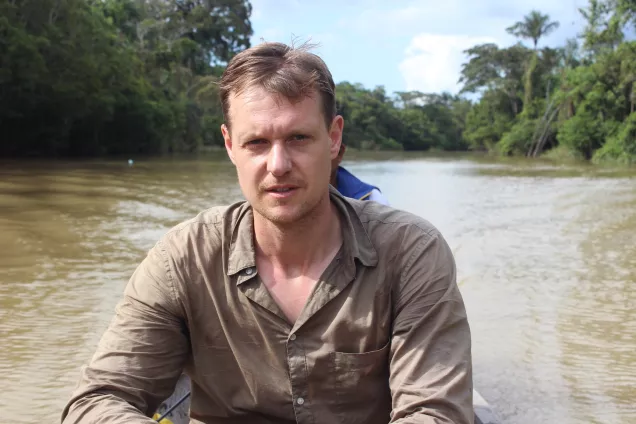– It is an important decision because Indigenous People can now obtain legal rights to disputed traditional lands. It also sends a signal to organizations and communities in other countries that Brazil respects the statutory rights of Indigenous People, says Torsten Krause, senior lecturer at Lund University Center for Sustainability Studies, LUCSUS.
- In terms of biodiversity, it is also positive because the forest is generally better off, and deforestation is significantly less when it is taken care of by Indigenous People. There is also less mining in these areas, which is good for protecting endangered species and sensitive environments.
New political governance a positive development
Compared to the situation under former President Jair Bolsonaro, who pursued an active policy to expand deforestation and increase the expansion of agriculture and mining in the Amazon, the situation for Indigenous People and biodiversity in the country has improved since Lula da Silva won the election in 2022, Torsten Krause highlights. At the Amazon Summit in August, attended by leaders from the eight countries covered by the Amazon, a joint declaration was also adopted to prevent the destruction of the Amazon rainforest. In June, the EU's deforestation law came into force, with the aim of preventing EU countries from trading in goods (coffee, cocoa, soy, palm oil, cattle, rubber and timber) that contribute to deforestation in, for example, the Amazon.
- Despite a lot of positive things happening, the problem remains that the demand for the products that contribute to deforestation is high. There are always companies and countries outside Europe that want to buy products such as soy, palm oil, cocoa or coffee. If demand from the outside world remains the same, or rises, the pressure on the ecosystems will also be higher, says Torsten Krause.
He emphasizes that the green transition may also drive the negative development because the demand for minerals such as lithium and copper will increase. Mining has a large environmental impact and often contributes to negative consequences for local communities.
The problems are transferred to other countries
Torsten Krause fears that the decision from the Supreme Court may mean that deforestation for agriculture and mining increases in Brazil's neighboring countries.
– The agricultural and mining sector in the region is strong and will push to find new ways to expand.
As an example, Torsten Krause highlights what happened 15 years ago when Brazil introduced laws to reduce deforestation: then many agricultural companies moved to Bolivia and Paraguay, where they razed large areas of forest to expand livestock farming. In Brazil itself, it is the Cerrado ecosystem and savanna that has been most affected by the soy industry.
Sweden should follow Brazil's example
– We may have to start questioning whether it is a right to have an electric car and continued high consumption, regardless of whether we succeed in reducing deforestation for the products we import into Europe. A green transition should also be a fair transition, and as things look now, conflicts over land will most certainly increase. If not in Brazil, then in other countries that do not have this kind of progressive legislation and political will.
Not least Sweden - where Europe's only Indigenous People, the Sami, live - has a lot to learn from what is now happening in Brazil, he continues. For example, Sweden has not joined the ILO (International Labor Organization) Convention on Indigenous and Tribal Peoples (ILO-169) but has committed to follow the UN's Declaration on Indigenous Peoples. The ILO demands that the land traditionally occupied by indigenous peoples be recognized and respected.
– It is noteworthy that Sweden has not yet ratified the ILO convention. Brazil shows that if you want to manage renewable resources in a sustainable way, giving rights to those who have occupied the land for a long time can make a big difference.

